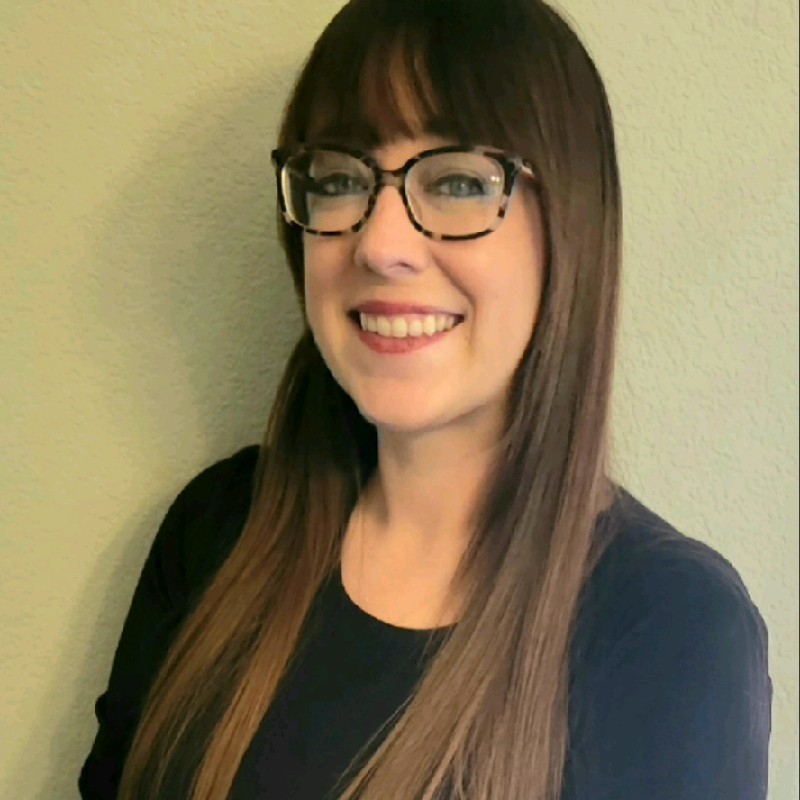Table of Contents
What Is An IOP Program? What Does It Stand For?
Intensive Outpatient Program (IOP) is a form of mental health treatment that allows individuals to receive focused and intensive therapy while still maintaining their daily responsibilities, such as work, school, or family commitments. Unlike inpatient programs, which require patients to reside at a treatment facility, IOP offers a middle ground, providing a structured therapy environment without the need for a residential stay.
IOP stands for “Intensive Outpatient Program.” This type of program is designed to address addictions, depression, eating disorders, or other dependencies that do not require detoxification or round-the-clock supervision. It enables patients to live at home and engage in their regular activities, offering a balance between the intensive care found in inpatient services and the flexibility of outpatient care.
The core of an IOP is its intensive treatment schedule, typically involving several hours of therapy per day, multiple days a week. This can include:
- Individual counseling
- Group therapy
- Educational sessions
- Skills training workshops
The goal of an IOP is to provide patients with the tools and support they need to manage their conditions and work toward recovery while integrating their treatment with everyday life. This structure is particularly beneficial for those transitioning (step-down) from an inpatient setting or those who require more support than traditional outpatient care can offer.
Who Is An IOP Program For?
An IOP is designed for individuals who need more support than traditional outpatient therapy but do not require the 24-hour care provided by inpatient treatment. IOP is particularly suitable for those transitioning from inpatient to outpatient care, offering a structured therapeutic environment that supports their continued recovery.
IOP is ideal for individuals dealing with:
- Mental health disorders
- Substance use disorders
- Co-occurring disorders
and who are stable enough to not need round-the-clock supervision. It serves those who have responsibilities such as:
- Work
- School
- Family
that prevent them from participating in a full-time residential program.
Participants should have a stable living situation and a supportive environment, as these factors are crucial for the effectiveness of the program.
People in an IOP typically demonstrate a commitment to recovery and have a level of insight into their condition that allows them to engage actively in their treatment plan. The program is structured to help them develop:
- Coping mechanisms
- Improve problem-solving skills
- Establish a supportive network
all while managing the demands of their everyday life.
For those who have completed a higher level of care, such as inpatient treatment, an IOP provides a step-down level of care that helps to ease the transition while maintaining a strong focus on recovery.
Comparing Inpatient vs Outpatient Facilities
Inpatient and outpatient facilities offer different levels of care for individuals requiring medical or psychiatric treatment, with the key distinction lying in the intensity and setting of the care provided.
Choosing between inpatient and outpatient care depends on the individual’s specific medical or psychological needs, the severity of their condition, their support system, and their ability to maintain safety and stability in a less controlled environment.
Inpatient Facilities | Outpatient Facilities | |
Environment: | Inpatient care involves staying at a hospital or a specialized residential facility 24/7 for the duration of the treatment. | Patients visit the facility for treatment sessions but do not stay overnight. They can maintain their daily routines like work or school. |
Intensity of Care: | Offers intensive, round-the-clock care for patients under the direct supervision of healthcare professionals. | While the care is professional, it’s scheduled during specific hours and does not provide continuous monitoring. |
Duration: | Patients typically stay for a number of days, weeks, or even months, depending on their condition and treatment requirements. | Treatment can range from short-term sessions to long-term programs, depending on the specific needs and progress of the patient. |
Suitability: | Ideal for individuals with severe conditions that require immediate and continuous medical attention, such as serious illnesses, surgeries, acute psychiatric conditions, or intensive rehabilitation. | Outpatient care is suited for individuals with mild to moderate conditions who are stable enough to not require constant supervision. It’s also used for ongoing management of chronic conditions or post-inpatient treatment follow-up. |
Cost: | Generally, inpatient care is more expensive due to the comprehensive services, including accommodation, meals, and 24-hour medical oversight. | Less costly compared to inpatient care, as it excludes the costs associated with overnight stays. |
Support: | Provides a structured environment with immediate access to medical and therapeutic support, which is crucial for individuals with critical or unstable conditions. | While supportive, it requires a greater level of independence from patients, who must manage their conditions in their regular living environment. |
How Long Is IOP?
The duration of an IOP can vary significantly depending on the specific needs of the individual, the nature of the program, and the progress made during treatment. Typically, an IOP can last anywhere from a few weeks to several months. The exact length of time depends on several factors, including the patient’s condition, their goals, and how they respond to the therapy.
Most IOPs require participants to attend sessions several times a week, often for two to four hours at a time. The frequency and duration of these sessions are designed to provide a substantial level of support without the need for 24-hour care. Over time, as participants make progress, the intensity and frequency of the sessions may decrease before the program concludes.
The flexible nature of IOPs allows for adjustments based on individual progress. Some participants may complete their program in as little as six weeks, while others might need several months to meet their treatment goals effectively.
The decision to conclude the program typically involves a collaborative assessment between the healthcare providers and the patient, ensuring that the individual is adequately prepared to transition to a less intensive level of care or to conclude their formal treatment.
Benefits Of An IOP Program
Intensive Outpatient Programs (IOPs) offer a range of benefits, catering to individuals who require significant support but don’t need or cannot commit to inpatient care. Here are some key benefits of IOP:
Flexibility: IOP allows individuals to receive treatment without having to stay in a hospital or residential facility, enabling them to maintain their daily routines, such as work, school, or family commitments. This flexibility helps participants integrate treatment into their regular lives, promoting a balance between therapy and daily responsibilities.
Access to Intensive Therapy: Despite being less restrictive than inpatient care, IOP still provides a high level of support and structure. Participants engage in multiple therapy sessions per week, which may include individual counseling, group therapy, and educational workshops, offering a comprehensive approach to treatment.
Real-world Application: Since IOP participants live at home and engage with their usual environments, they have the opportunity to apply the strategies and skills learned in therapy to real-life situations. This immediate application can enhance the learning process and promote lasting behavioral change.
Support Systems: IOPs often include group therapy, which provides a supportive community where individuals can share experiences, offer mutual support, and learn from others facing similar challenges. This sense of community can be a vital source of encouragement and understanding throughout the recovery process.
Continuity of Care: For individuals transitioning from an inpatient setting, IOPs offer a step-down level of care that maintains a high degree of support while adapting to a less restrictive environment. This continuity is crucial for a smooth transition and sustained recovery.
Cost-Effectiveness: Generally, IOPs are less expensive than inpatient treatment because they don’t include the costs associated with overnight stays. This makes IOP a more accessible option for those with budget constraints or without comprehensive insurance coverage.
Family Involvement: Many IOPs provide opportunities for family involvement in the treatment process, which can be beneficial for the participant’s recovery. Family members may participate in therapy sessions or educational programs, helping to build a supportive home environment conducive to recovery.
By combining structured therapy with the freedom to live at home, IOPs offer a unique and effective approach to treatment that supports individuals in their journey toward recovery.

What Do You Do In IOP Level Of Care?
In an Intensive Outpatient Program (IOP) level of care, participants engage in a structured series of therapeutic activities and treatments designed to support their recovery while allowing them to live at home and maintain daily responsibilities. Here’s what typically happens in an IOP:
Therapy Sessions: Individuals attend regular therapy sessions, which may include individual counseling, where they work one-on-one with a therapist to address personal issues and develop coping strategies. Group therapy is also a significant component, offering a space to share experiences, learn from others, and receive peer support.
Educational Workshops: IOP often includes educational sessions that provide information about the nature of the individual’s condition, whether it’s substance use, mental health disorders, or co-occurring disorders. These sessions aim to increase participants’ understanding of their conditions and learn how to manage them effectively.
Skills Development: Participants learn various skills that are crucial for managing their condition and maintaining their recovery. This can include stress management techniques, communication skills, problem-solving strategies, and relapse prevention planning.
Psychiatric Care: Some IOPs include psychiatric care, where participants can receive medication management and monitoring if necessary. This aspect is particularly important for those with co-occurring mental health disorders.
Holistic Therapies: Many programs incorporate holistic or alternative therapies such as art therapy, music therapy, mindfulness, or yoga. These activities can enhance well-being, reduce stress, and provide new outlets for expression and self-discovery.
Family Involvement: Family therapy or family education sessions might be part of the program. These sessions help families understand the participant’s condition and learn how they can best support their loved one’s recovery.
Peer Support: The communal aspect of IOP allows individuals to build a network of peers who are also working toward recovery. This peer support can be an invaluable source of encouragement and understanding.
Case Management and Support Services: IOPs often provide case management to help participants navigate other aspects of their lives that may be affected by their condition, such as legal issues, employment, or housing.
Overall, the activities in an IOP are designed to provide intensive support and comprehensive treatment in a more flexible setting than inpatient care, addressing the physical, mental, emotional, and sometimes social aspects of the individual’s condition.
Clearfork IOPs Are Here To Help
Whether your teen is just starting their recovery journey, transitioning out of residential treatment, or in need of behavioral or mental health treatment, ClearFork Academy is ready to provide the necessary support. Contact us today to learn more about our teen IOP programs in Fort Worth and Carrollton, Texas and take the first step towards a brighter future and long-term sobriety.
IOP FAQs
What conditions do Intensive Outpatient Programs (IOP) treat?
- IOPs are designed to treat a variety of conditions, including but not limited to substance use disorders, mental health disorders such as depression and anxiety, eating disorders, and co-occurring disorders. The specific focus can vary based on the program.
How often do I need to attend an IOP?
- Typically, participants are required to attend IOP sessions several times a week, often for two to four hours at a time. The exact frequency and duration can vary based on the program’s structure and the individual’s needs.
Can I continue studying while attending an IOP?
- Yes, one of the main benefits of an IOP is the ability to maintain your daily responsibilities, such as work or school, while receiving treatment. The program schedules are often designed to accommodate these responsibilities.
How does IOP differ from traditional outpatient therapy?
- IOP provides a more intensive level of care than standard outpatient therapy, with more frequent and longer sessions. It offers a structured environment that’s less intensive than inpatient care but more supportive and comprehensive than standard outpatient care.
Is family involvement important in IOP?
- Many IOPs encourage or incorporate family involvement in the treatment process. Family members may participate in therapy sessions or educational programs, which can enhance the support system for the participant.
What happens if I miss an IOP session?
- Consistency is crucial for the effectiveness of IOP. While occasional absences may be unavoidable, frequent misses can hinder progress. Programs typically have policies regarding attendance and may require participants to make up missed sessions.
How is success measured in an IOP?
- Success in IOP can be measured through various factors, including improved mental health symptoms, reduced substance use, enhanced coping skills, better relationship dynamics, and overall improved quality of life. Progress is often assessed continuously throughout the program.
What happens after completing an IOP?
- Upon completing an IOP, individuals may transition to a standard outpatient therapy for continued support, or they may conclude their formal treatment, depending on their progress and individual needs. Many programs also offer aftercare planning or support groups to help maintain recovery.
Key Takeaways
- Flexible Structure: Intensive Outpatient Programs (IOP) offer a flexible treatment structure, allowing participants to receive intensive therapy while maintaining their daily responsibilities like work, school, or family commitments.
- Comprehensive Therapy: IOP provides a mix of individual and group therapy sessions, educational workshops, and skills training, offering a comprehensive approach to treatment that addresses various aspects of the participant’s condition.
- Real-World Application: Since participants live at home during the program, they have the opportunity to apply the strategies and skills learned in therapy to their daily lives, enhancing the practicality and effectiveness of the treatment.
- Peer Support: Group sessions and the communal nature of IOP foster a supportive environment where participants can share experiences and strategies, offering mutual support and encouragement.
- Continuity of Care: IOP serves as an effective transition phase for individuals moving from inpatient to outpatient care or as a standalone intensive treatment option, providing continuity in the recovery process.
- Family Involvement: Many IOPs include family therapy or education, recognizing the crucial role of family support in the recovery process and helping to build a supportive home environment.
- Accessibility and Cost-Effectiveness: IOPs are generally more accessible and cost-effective than inpatient programs, providing an intensive level of care without the need for a residential stay, which can be a significant advantage for individuals with budget constraints.
- Aftercare Planning: Successful IOPs often include aftercare planning, offering resources or support groups to help participants maintain their progress and manage their recovery post-program.

Amanda received her Bachelor of Social Work from the University of North Texas and a Masters in Community and Administrative Social Work Practice from the University of Texas Arlington. Amanda has been in the mental health field since 2009 and has held a variety of leadership roles since 2012. Amanda has experience working in Inpatient, local mental health authorities, PHP/IOP and is excited to add residential treatment to her list! Amanda believes that servant leadership is the best way to build outstanding clinicians that then provide quality care to your loved ones. When Amanda is not working, she enjoys baking, reading, doing crafts and spending quality time with her husband and two amazing daughters.




